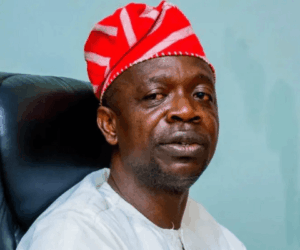“Rain does not fall on one roof alone.” — Cameroonian Proverb
In the landscape of life, no one is immune to hardship. This Cameroonian proverb reminds us that adversity is a universal condition. In the workplace, this truth is equally evident. Economic downturns, public health crises, regulatory changes, technological disruptions—these storms do not select their victims neatly. They impact organisations and individuals across departments, seniority levels, and sectors.
Yet, while the rain falls on every roof, not every roof holds strong. Some workplaces crumble under pressure; others endure and even emerge stronger. The difference lies in resilience—not individual heroism, but collective capacity.
Resilience in the workplace is the shared ability to absorb shocks, adapt to new realities, and rebuild with renewed strength. It is cultural, structural, and psychological. And in today’s volatile Nigerian economy, building collective resilience is not a luxury; it is an existential necessity.
The pandemic exposed the resilience gap in many organisations. Those with strong cultures of trust, flexible systems, and empowered teams navigated uncertainty better than those dependent on rigid hierarchies or top-down command structures. In many cases, SMEs with agile mindsets outperformed larger, slower corporates in adjusting operations, retaining customers, and protecting employees.
Building resilience starts with a mindset. Leadership must acknowledge that a crisis is not an aberration; it is a recurring feature of modern business life. Preparing for it should be woven into strategic planning, not reserved for emergency meetings. Resilient organisations are those where change management is continuous, not reactive.
Second, resilience demands distributed leadership. In hierarchical cultures, all decision-making bottlenecks are at the top. In resilient cultures, authority is delegated, frontline teams are empowered, and employees at every level are encouraged to own solutions. This decentralisation enables faster adaptation when circumstances shift suddenly.
Third, resilience requires psychological safety. Employees must feel safe raising concerns, challenging assumptions, and proposing alternatives without fear of ridicule or punishment. In rigid cultures where fear stifles dissent, early warning signals are missed. By the time leaders realise a crisis has erupted, it is often too late.
Fourth, organisations must institutionalise learning. Every disruption, whether external like a recession or internal like a merger, must be followed by honest retrospectives. What worked? What failed? What lessons must be codified? Resilient organisations treat failure as tuition, not termination.
Technology plays a role, too. Digital collaboration tools, cloud infrastructure, and flexible work systems enabled many firms to pivot quickly during the pandemic. But technology alone is insufficient. Without human resilience—creativity, empathy, grit—systems remain cold and mechanical.
Employee well-being is central to resilience. Burnt-out employees do not innovate or adapt; they disengage or leave. Organisations must treat wellness not as a perk but as a pillar—investing in mental health support, workload balance, and holistic care. During crises, managers must check in on people, not just projects.
Equitable policies also strengthen resilience. When employees believe that sacrifices are shared fairly—that executive bonuses are curtailed during layoffs, that frontline workers are supported during downturns—they commit more fully to recovery efforts. Crisis response must be collective, not selective.
Organisations must also cultivate external resilience—building strong relationships with suppliers, regulators, and communities. These networks become lifelines during crises. Firms that invested in community goodwill during good times found public support during bad times.
“Digital collaboration tools, cloud infrastructure, and flexible work systems enabled many firms to pivot quickly during the pandemic.”
Case studies from around the world reinforce these lessons. After the 2008 global financial crisis, companies like IBM and Procter & Gamble not only survived but also repositioned for growth because they had built cultures of adaptability and learning. In Nigeria, banks that invested early in digital channels weathered COVID-19 disruptions better than those dependent solely on physical branches.
Importantly, resilience must be inclusive. Often, organisations protect core management roles while leaving contract workers, junior staff, or outsourced teams vulnerable during downturns. This approach creates moral hazard and cultural fragmentation. A truly resilient organisation ensures that all parts of its workforce are supported, heard, and mobilised during tough times.
Resilience is also a communications challenge. During crises, uncertainty breeds rumours. Leaders must over-communicate—sharing what they know, what they don’t, and what they are doing about it. Transparency builds trust; silence corrodes it.
Finally, resilience must be forward-looking. It is not enough to survive a storm. Organisations must use crises as catalysts for reinvention—rethinking business models, investing in innovation, and strengthening values.
In the context of HR, building collective resilience means embedding adaptability into hiring criteria, learning pathways, leadership development, and reward systems. It means rewarding not just individual brilliance but collective problem-solving. It means moving beyond rigid job descriptions to flexible skill-building.
The Cameroonian proverb reminds us: no organisation, no department, no executive is immune to disruption. The rain will fall. The only question is whether the roof will hold—and whether those beneath it will emerge stronger, wiser, and more connected.
Building resilience is not about preparing for a single storm. It is about cultivating a way of being—a shared belief that whatever the challenge, we will face it together, adapt together, and rebuild together.
Because while the rain falls on every roof, the strongest houses are those built not just with bricks, but with trust, care, and collective strength.
Dr. Olufemi Ogunlowo is CEO of Strategic Outsourcing Limited and writes on workplace resilience, employee wellbeing, and organisational transformation for BusinessDay.









